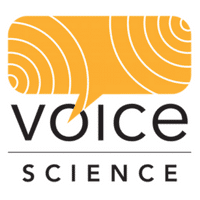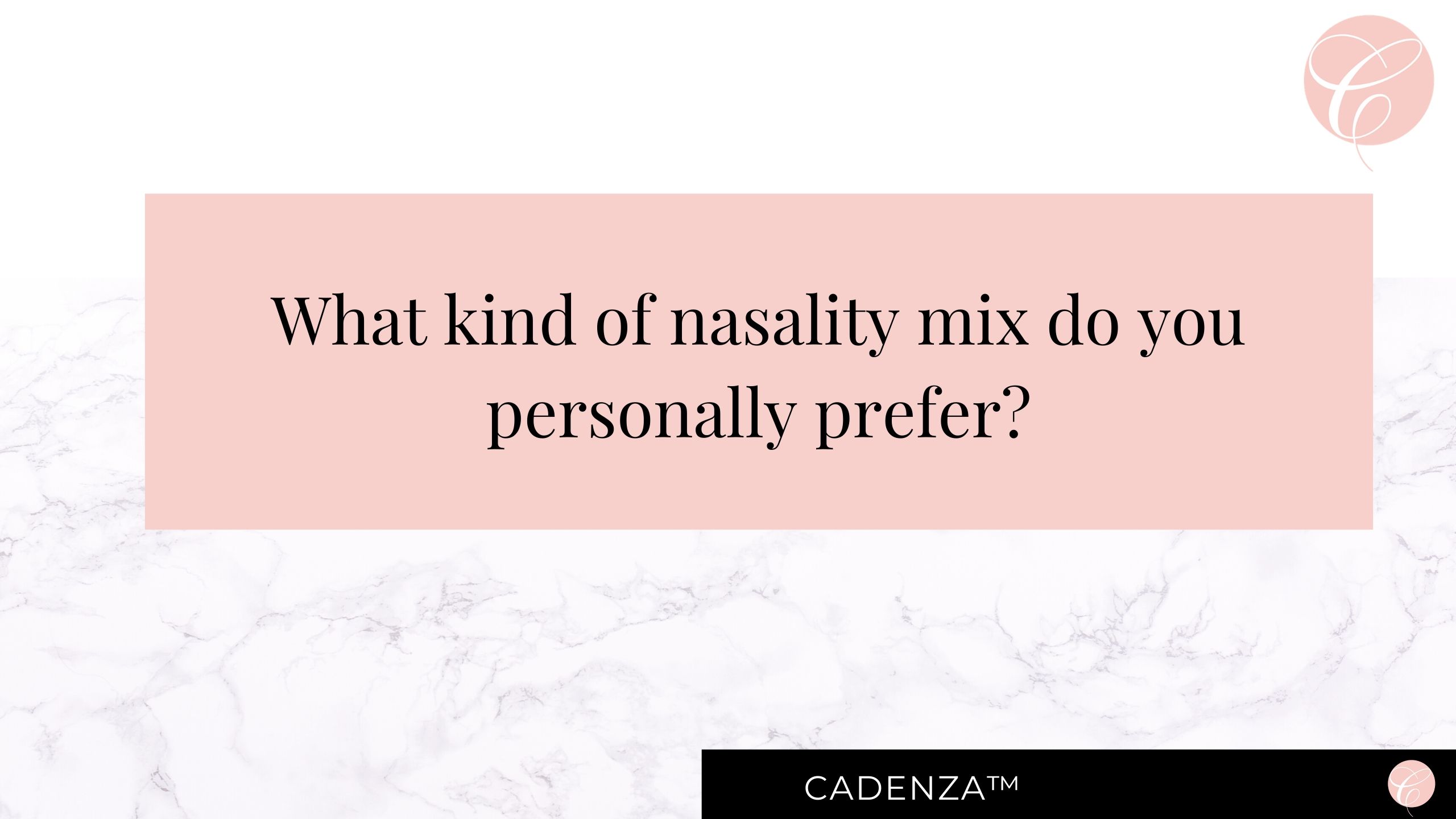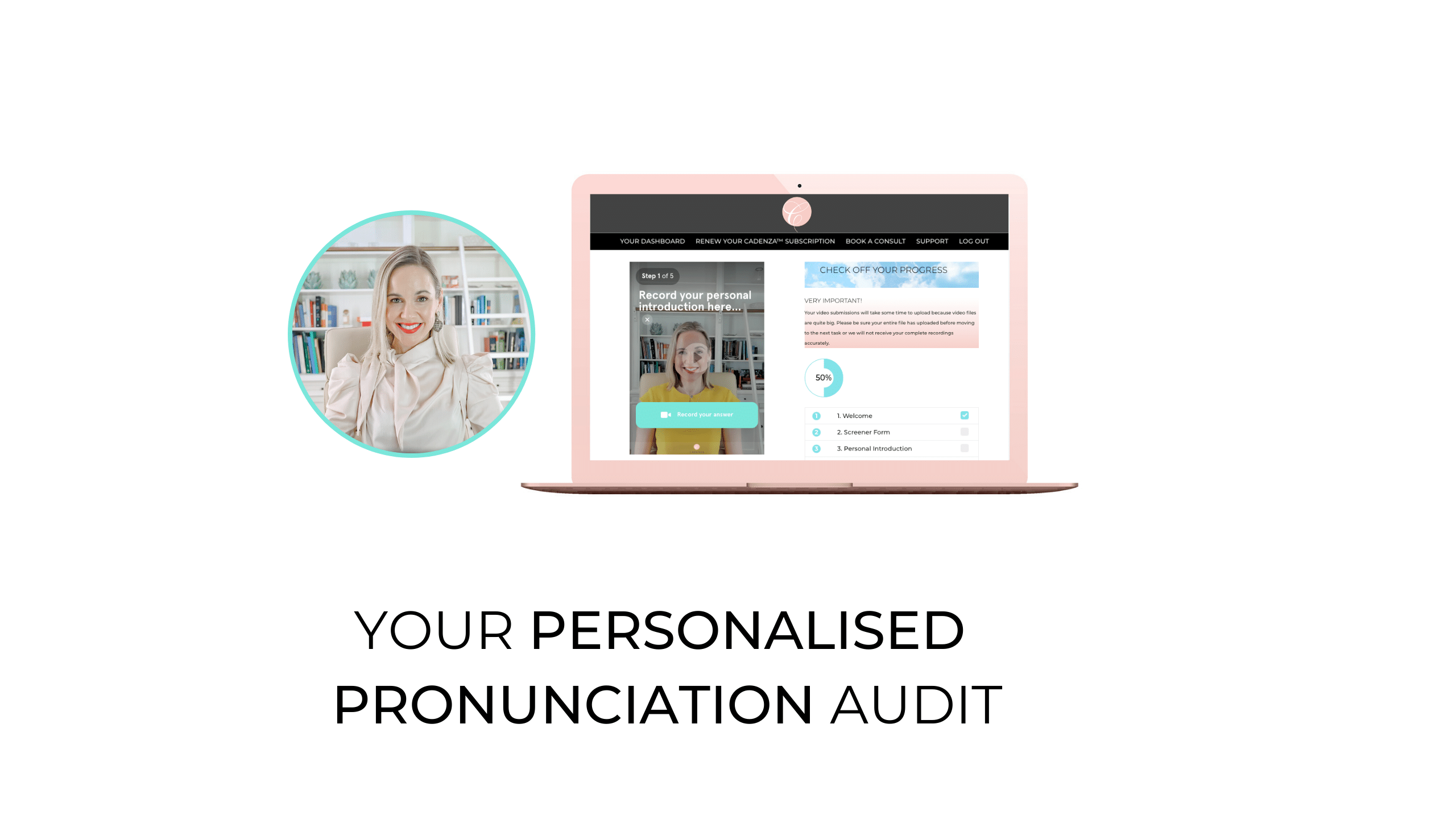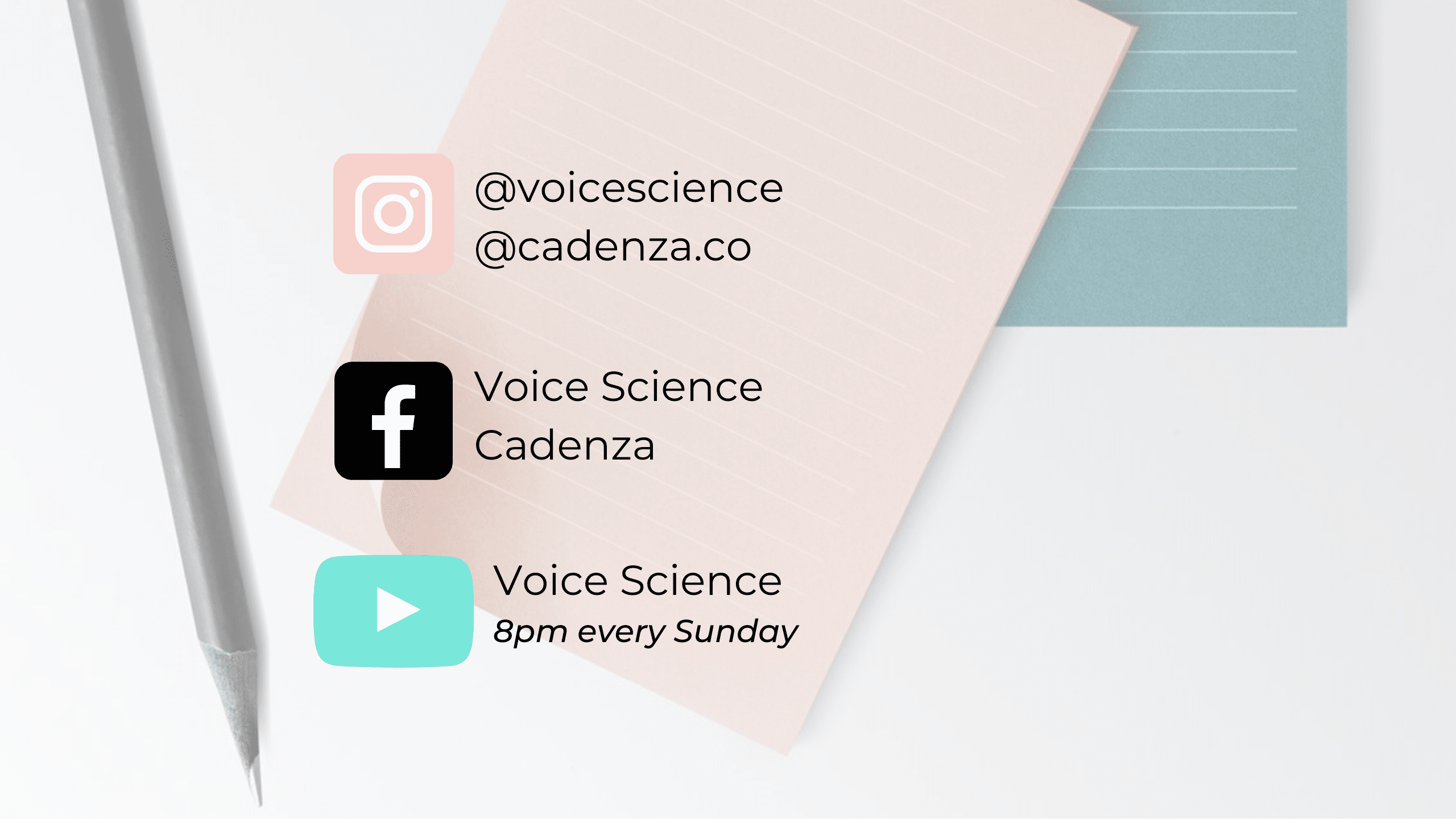Transcript: Everything you need to know about Mainstream Aussie Pronunciation
Read the Transcript See our accent servicesTRANSCRIPT
In today’s episode, we’re talking about the Aussie Accent.
Before we jump right in, you might be wondering what I do I know about it?
Fair enough!
Firstly, I’m Australian.
Secondly, I live in Melbourne, Australia. Thirdly, I’m a speech pathologist who has assisted 1000’s of clients to learn the rules of Aussie English and finally I’m an opera singer who had to remove my Australian accent so that I can sing correctly in the operatic languages.
So yes. I know a lot, and I can’t wait to share the core principles you need if you want to move your English speaking closer to Aussie pronunciation.
Before we get into our topic, make sure you check the blog post that goes with this tutorial, so make sure you check it out over on our website- I’ve linked it below for you.
Important Disclaimer!!!
The Aussie Accent is not the only way to speak English.
In fact, in Australia, we have numerous different forms of English pronunciation, and I’d argue that all of them are as legitimate and official as each other. Your speaking is not inferior if you live in Australia but don’t have an Aussie accent. Currently, there are more non-native speakers of English than native, so no one can tell you that using an Aussie accent is the only correct way to speak if you live in Australia.
So what do you really need to know about Aussie pronunciation if you love it and want to use it more?
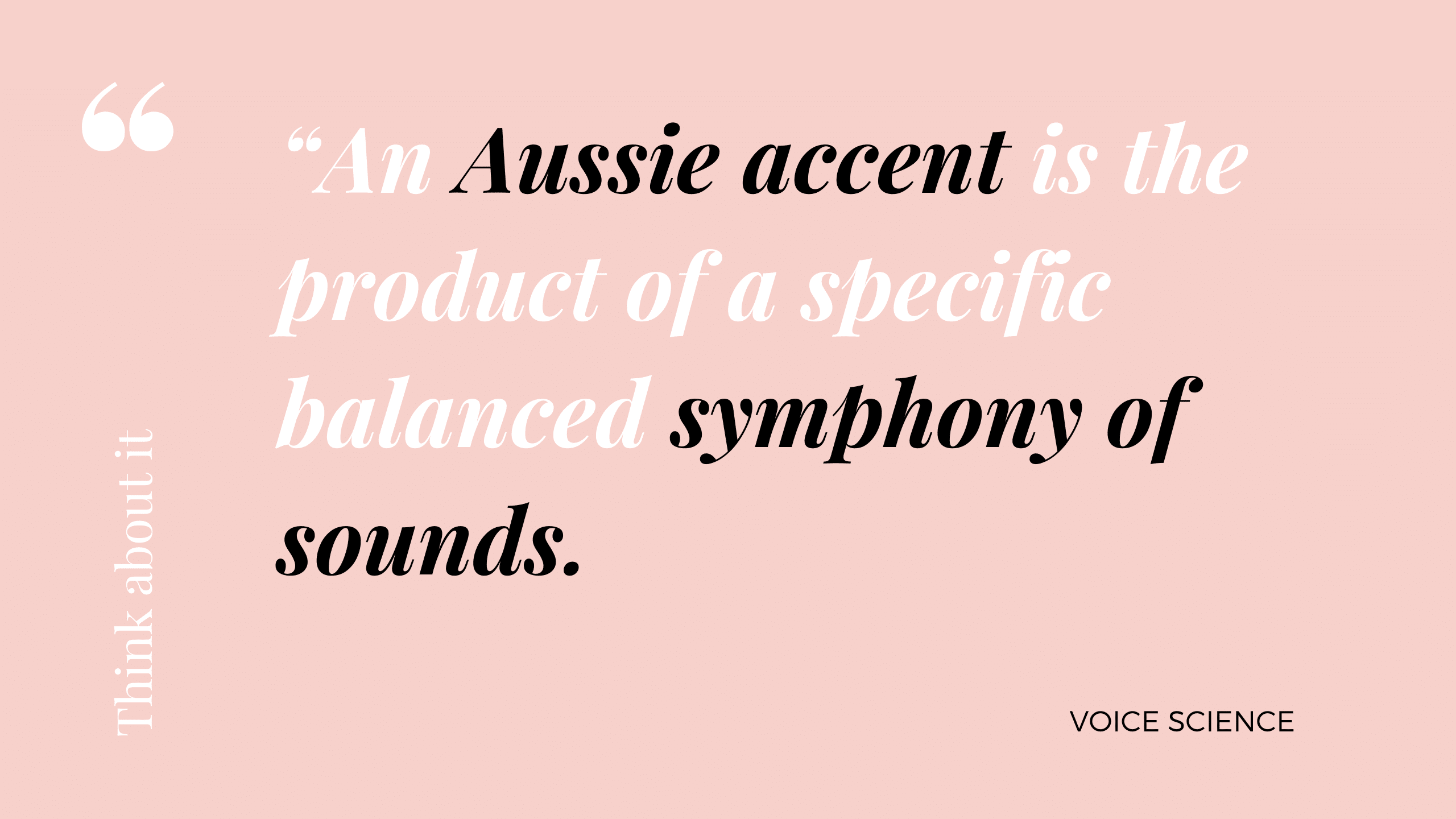
Well firstly, Aussie English is not 1 fixed way of speaking. While speakers share similar pronunciation rules, you’ll hear lots of variation in how people pronounce things, even if they’re all using an Australian accent.
These variations can include, and are not limited to:
Different Voice Qualities
We all use our voice differently. Some people use healthier voice quality.
Typically, mainstream Australian English can have quite a lot of vocal fry, but that doesn’t mean that everyone uses it. I personally don’t because I want to create a healthy, energetic sound when I speak, so voice quality really matters to me when I speak.
Some speakers have different levels of nasality.
Throughout the country, you’ll hear different nasal qualities. Some of this is dependent upon where the speaker grew up or family influence, in other cases, it can also depend upon some factors around that person’s nasal cavity and even speaking habits. In Australia you’ll hear speakers who are:
Hypernasal
“I live in Melbourne”
Hyponasal
“I live in Melbourne”
Balanced oral and nasal resonance
“I live in Melbourne”
These speaking qualities will affect your perception of the Aussie accent and can account for why you might personally prefer certain speakers over others.
What kind of nasality mix do you prefer?
Also, it’s good to consider what are the nasality features of your first language or even your own way of speaking. If you’re not sure, this is something that we check in Your Personalised Pronunciation Audit.
We’ll analyse how effectively you manipulate your nasal vibration and your mouth cavity vibration.
This area of assessment is particularly important for speakers from languages that have specific nasal vowel needs like French, Hindi or even Portuguese.
It’s important to note that Aussie English doesn’t have nasal vowels, but we can sound very nasal at times.
And in case your wondering, in most cases degrees of nasality can be changed via resonant voice therapy.
Formality Really Matters
In the Australian accent, you can hear 1 speaker really vary their speech patterns according to who they’re talking to and what they want to achieve in their conversation.
I’m sure you know that when you speak your first language, your pronunciation may adjust a bit for different environments.
You may use more precise speaking with your boss than with your best mate.
In the case of Aussie English, we can see some large differences between pronunciation that link to formality.
Conversational English in an informal social interaction is more likely for many speakers to move toward a broad Australian accent. We may hear less precise consonants, longer vowel durations, increased nasality, and changes in voice quality.
Whereas in the formal space, that speaker may sound entirely different, but importantly, still Australian.
I often get asked where I’m from because I seldom drop into the super informal broad Australian accent, although I know the rules for it, I wasn’t ever really raised in a house with good examples of it!
My mum speaks very clearly and formally, and my dad is a bit broader, but he has more of a general accent than totally broad.
This can account for why you may sometimes misunderstand your colleagues – if you’re used to hearing a clear and cultivated formal manner of speaking when your colleagues switch to small talk or pass a fast phrase, it’s easy to lose the gist due to some Aussie pronunciation features that emphasise the broad Aussie accent.
It’s important therefore to think about what styles of Aussie English speaking you understand well. Increase your listening opportunities and exposure to different speakers in Australia and make sure you balance out professional speaking manner and informal speaking manner.
When you consider your goals for incorporating more Aussie pronunciation, don’t forget that the informal social way of speaking can be a really great tool to build rapport and mutuality with your listener.
You don’t need to sound Aussie to make friends.
You don’t need to sound Aussie to have influence, but if you like the Aussie accent and want to use it, commit to learning the sounds of cultivated formal and informal broad speaking,
Increased Variation on Vowels & Consonants
You can change up your vowels and consonants a lot when you play with the Aussie accent.
At Voice Science, our team loves to show you all the little tricky details that makeup Aussie English. An Aussie accent is the product of a balanced symphony of sounds. The challenge is that now you know formality matters, 1 speaker can say the same word differently according to the context (who they’re speaking to) or even the position of the word in the sentence.
The formal language that we use in the workplace setting is actually less formal than you might expect. Less formal than English Speaking textbooks.
What gets modified?
Aussie accents tend to modify the following pronunciation features:
- Vowel durations – At times we may shorten, destress or lengthen specific vowel sounds. Diphthongs tend to be made extra long for a Broad Australian accent
- Consonants- We do delete certain sounds, especially at the ends of words (like the letter /t/ and /r/).
Take care though, don’t go deleting everything left right and centre to sound Australian or you may lose the most important thing in your speaking- your CLARITY.
There’s no point adjusting your speaking in any direction if you lose your clarity.
This is why it’s important to work with someone who can both teach you all the rules for Aussie English and monitor your message transfer so you still sound amazing and convincing.
- Language choice and structure can also vary drastically! This will impact on formality. For example: “Do you want a coffee”, “Do you wanna coffee”, Shall we have a coffee?”
It’s Hard to Learn Aussie Pronunciation Alone
My final point is that the Aussie Accent is actually really hard to learn.
It can also really hurt when people ask “What did you say, huh? What was that?,” but don’t let that get you down and definitely don’t stop speaking or participating.
There are so many reasons why someone might ask you to repeat yourself.
Give yourself some credit.
Don’t assume that every time they ask, it was due to your pronunciation.
There are moments when they won’t understand you because of dropping focus, background noise, increased listener pressure… it’s not always your fault.
In fact, I don’t think it’s ever your fault.
Communicating effectively relies on more things than your pronunciation.
It also involves teamwork, so take care of yourself and don’t put all the burden on yourself to have 100% communication stress and if you’re stuck you might like to consider the High-performance communication audit.
Enrol Now
This is a good alternative and option for you if you think things are going on with your communication that could be improved that don’t relate to your pronunciation clarity.
The High-performance Communication Audit looks into your communication agility and identifies what is holding you back in terms of your voice tone, your expression, your language usage or even your interpersonal skills.
So make sure you check it out if you think that you need to work on things separate to pronunciation.
In wrapping up, You might also like to subscribe to our channel, make sure you turn notifications on for our posts to stay up to date with all the bonus content we pump out weekly and head to our Facebook and Instagram for daily communication tips.
Your voice and your message matter enormously. Share your thoughts and insights without fear, no matter how clear you are.
Thank you so much for watching. I hope this vlog has given you some new insights into the Aussie accent. Let me know if you have any questions in the comments below.
See you next time,
Ciao!
